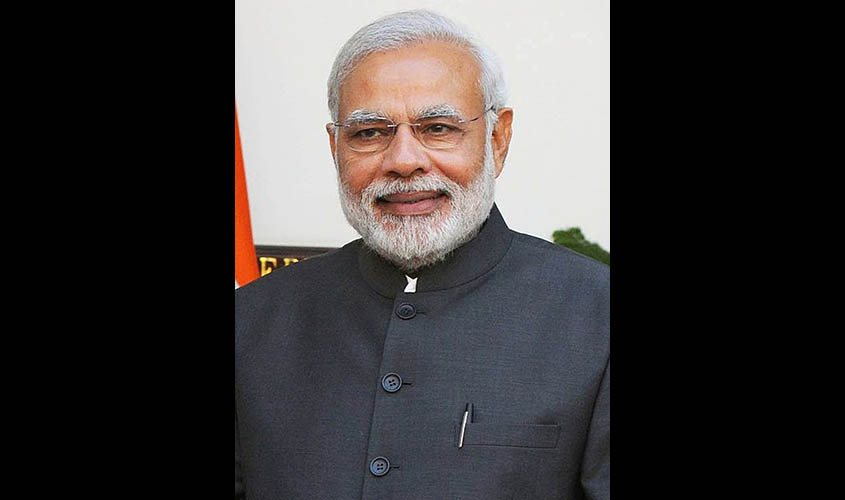Prime Minister Narendra Modi’s visit to Kerala, ostensibly to pray at the famous Guruvayur Sri Krishna temple in central Thrissur district, days after his swearing-in, is considered as a major step towards BJP’s planned “Southern outreach”. Though eyebrows were raised in certain quarters about the timing of the PM’s visit—it coincided with that of Congress president Rahul Gandhi’s trip to his new constituency, Wayanad—the message was clearly political. Rahul Gandhi did not bother to visit Amethi, his home constituency for the last 15 years, and seek to know why the voters there, whom he considered as part of the family, have decided not to nominate him to the 17th Lok Sabha. However, here was Narendra Modi going to Kerala, the only state that has overwhelmingly rejected him, and telling his party workers there that “those who made us win are ours; those who did not make us win are also ours”. There may be many in the state who question the sincerity of the Prime Minister’s words, but Modi had successfully put across the message when he passionately added that “Kerala is as much mine as is Varanasi”. It is immaterial that he said this at a gathering of mostly BJP workers, called “Abhinandan Sabha”, a meeting to congratulate Modi on his stupendous victory, although there was not much to cheer for the party in the state by way of winning a seat. “The BJP drew a blank in Kerala, you may ask why Modi selected Kerala for his first political speech. Kerala is as important as Varanasi,” Modi said as Rahul Gandhi’s victory road show wound its way through the narrow lanes and bylanes of Wayanad, blissfully unaware of what future awaits him. But he did not mince his words. “He (Modi) represents the worst sentiments of this country. He represents anger, he represents hatred, he represents insecurity and he represents lies,” Rahul Gandhi told cheering crowds.
Almost 85% of Kerala may believe in Rahul Gandhi’s words, as is reflected in the state’s election verdict, but BJP is not ready to give up. “BJP workers are on the ground not only for electoral politics, but they serve people 365 days a year. We have not come into politics only to form government, but we are here to build the nation,” Modi said to the applause of party workers. The state BJP leadership has every reason to look forward, especially after the Modi visit and his message to the people of Kerala. The ruling LDF government knows that in Amit Shah, the Home Minister, it has a formidable opponent to watch for. The main opposition UDF, despite its stunning victory, knows that they may not be the gainers of people’s anger against the ruling government next time. Statistics throw light on this. If the BJP had got 18 lakh votes in 2014, this time it has gone up to 32 lakh, though compared to Assembly elections it has only risen by three lakh. If in 2014 the BJP crossed the 15% vote share mark in four constituencies, this time it has become seven. Out of this seven, the party crossed the 20% mark in five places, while it was only in Thiruvananthapuram last time. The party suffered a slight setback in one of its strongholds, Kasaragod, but has made quantum jumps in constituencies such as Thrissur (17% rise), Attingal (14%) and Aalappuzha (13%). Significantly, in all these places it is the Left vote that has come to BJP’s kitty, considered by the state leadership as the one major gain out of this election. They point out to what happened in Bengal this time, where Left vote went to the BJP in huge numbers, and blithely say that what Bengal thinks today, Kerala may think tomorrow. If a party which is now in second position in West Bengal with 40.25% and first place in Tripura with 49.03% in a span of five years, Kerala is not very far.
Addressing party office-bearers from the states, BJP president Amit Shah has said that “the party will reach its zenith only when it runs governments in Bengal and Kerala”. In West Bengal, they are almost there and hence the party leadership is likely to concentrate its attention more on Kerala. The immediate test will be the Assembly byelections for six seats due in a few months’ time. All eyes will be on Amit Shah, who is set to continue as party chief at least until December. Many top leaders in the state are hopeful that Shah will bring in a tougher party chief in place of the current soft-spoken P.S. Sreedharan Pillai. Hardliners are blaming Pillai for the party’s failure in notching up a seat in Kerala which was, as they say, “almost there for the party’s asking”. But the real task in front of the party will be to build its cadre from the grassroots, rather than its current over dependence on the RSS; unless it banks on an exodus from both the fronts in the state. It will be wise for the party leadership to understand that the Congress-led UDF won 19 seats not because of any of its merit as an opposition, but simply on default, plus anti-Modism. Such is the track record of the current government led by CPM’s strongman Pinarayi Vijayan. But will Kerala take a right turn is a big question. We will know after the Assembly elections in 2021.

